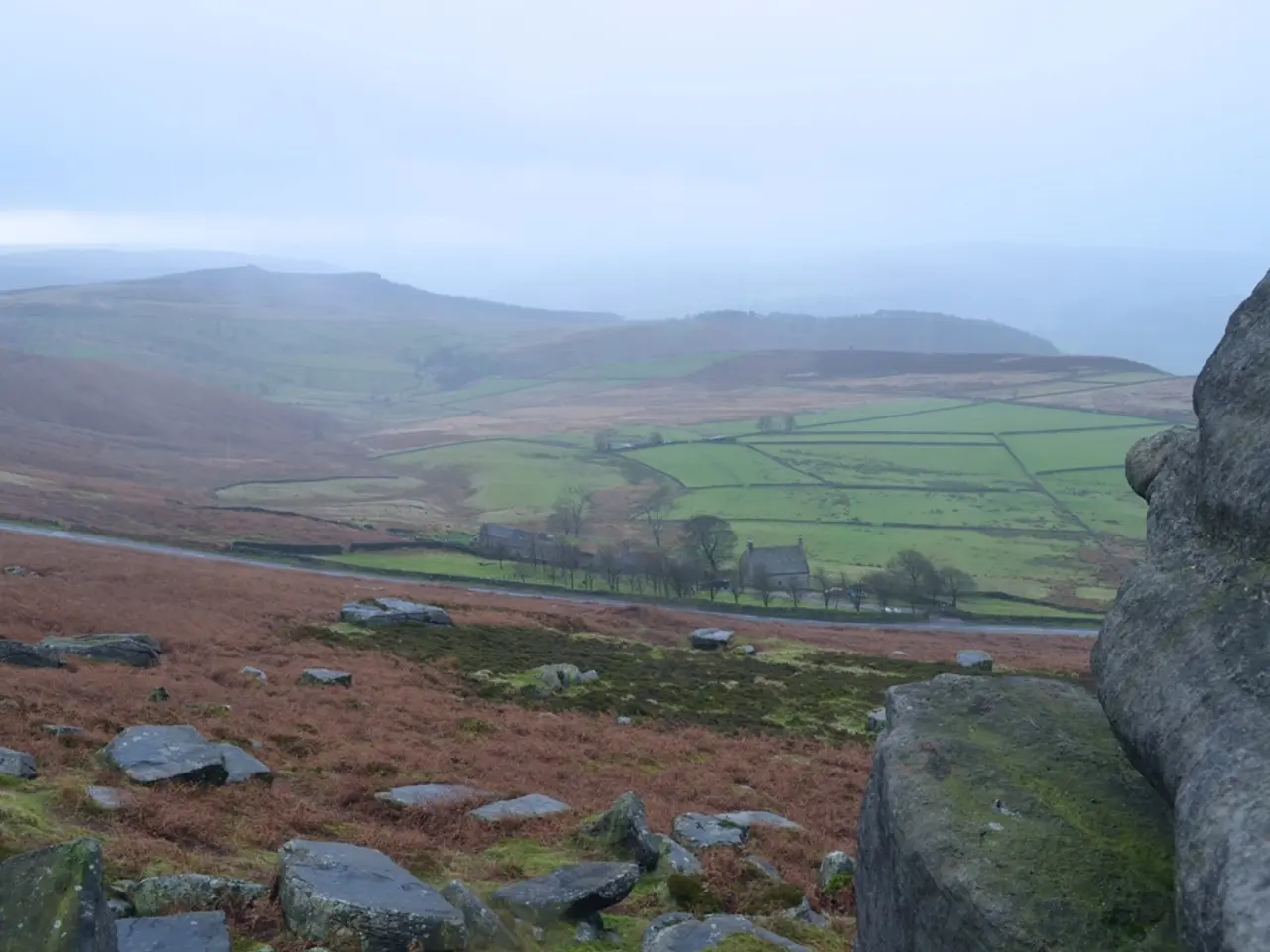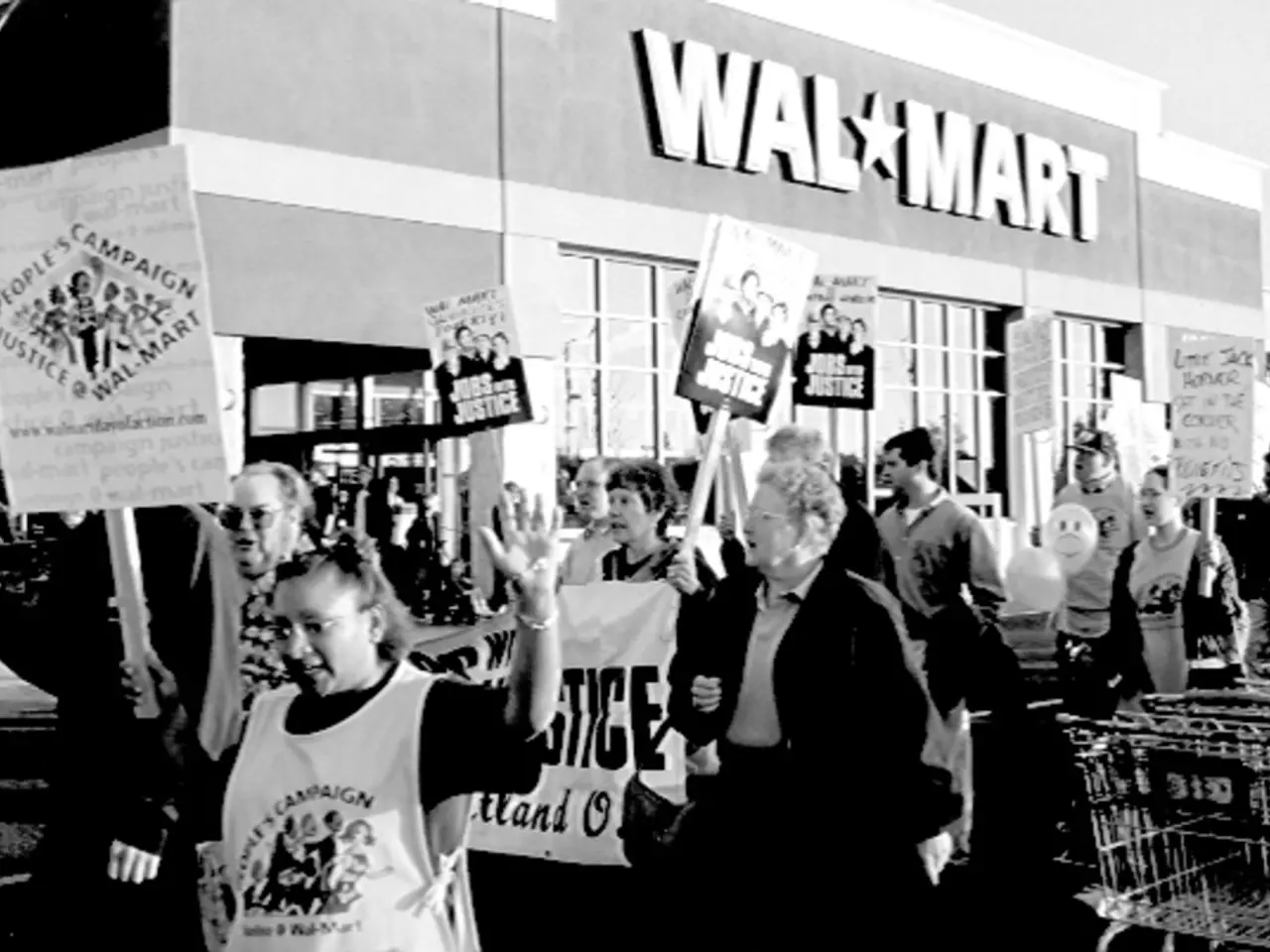Struggling Existence: Daily Struggles of Migrants in Tunis - Lives in Limbo: The Daily Struggles of Migrants Stuck in Tunis
In the heart of Tunisia, a nation striving to rebuild and prosper, a silent crisis unfolds. Sub-Saharan African migrants, driven by the pursuit of a better life and escaping violence and poverty in their homeland, face extreme precariousness[1][2][3].
The Sfax region has seen a rise in the dissolution of camps this year, leaving many migrants without shelter[4]. The streets of Tunis become a home for some, while others seek refuge in informal camps, such as olive groves near Sfax. These makeshift settlements are often targeted by police raids, with tents burned and belongings destroyed, forcing migrants to relocate under harsh conditions[2][3].
The economic landscape is unforgiving for these migrants. Many are relegated to informal and low-paying jobs, devoid of social protections. The constant threat of eviction looms over them, with the risk of detention following workplace arrests[2].
Legal and social marginalization is a pervasive issue. Approximately 70% of migrants distrust NGOs and UN agencies due to prolonged neglect and failures of coordinated support[1][2]. Many children among migrant populations are unregistered at birth, lacking civil status.
Tunisia's position as a transit zone for migrants is a result of uncoordinated regional migration policies and mass expulsions from neighbouring countries like Algeria and Libya, leading to increased migrant concentration near Tunisia’s borders and urban areas[1][3].
The European Union, through agreements and funding, aims to curb migration flows. However, this cooperation has not alleviated the dire living conditions of migrants nor halted border securitization[3][4]. In fact, the securitization of migration has led to violations of migrants' fundamental rights, exacerbating tensions with local populations[4].
Amidst this turmoil, stories of resilience emerge. Ahmed Barry, a 24-year-old migrant from Guinea, works at a car wash in Tunis. The business, equipped with old machinery and facing slow business, is one of the few still operational in the area due to water scarcity[5]. Ahmed shares a two-room apartment with five other migrants from West Africa.
Another migrant, Ali Moriba, also from Guinea, works alongside Ahmed at the car wash. Karim, a migrant from Cameroon, scavenges for plastic bottles in the trash in the suburb of Marsa to sell at the local dump. Despite the challenges, they persevere, embodying the indomitable spirit of those seeking a better life.
The EU agreement has resulted in a decrease in the influx to Italy from Tunisia, with an 80% decrease last year compared to the previous year[6]. This year, around 3,500 irregular migrants have voluntarily returned to their home countries, with the IOM organizing free flights twice a week in collaboration with Tunisian authorities and donor countries[6].
Yet, the journey is far from over for many. Karim, once attempted to cross the Mediterranean but was caught by the coast guard and sent away from the capital into the desert[7]. The coast guard has increased patrols and is monitoring the waters more closely, with the help of European equipment and harsher penalties for smugglers.
As the sun sets over Tunis, the struggles of its migrant population remain a stark reminder of the complexities of migration and the urgent need for humane and effective policies. The migrants' fight for a new, better life in Europe continues, marked by precariousness, insecurity, and frequent hostility.
References:
- Amnesty International (2020). Tunisia: Migrants and refugees face abusive treatment and arbitrary detention. [online] Available at: https://www.amnesty.org/en/latest/news/2020/03/tunisia-migrants-and-refugees-face-abusive-treatment-and-arbitrary-detention/
- Human Rights Watch (2020). Tunisia: Migrants and Asylum Seekers Face Abusive Treatment. [online] Available at: https://www.hrw.org/news/2020/01/29/tunisia-migrants-and-asylum-seekers-face-abusive-treatment
- United Nations High Commissioner for Refugees (2019). Tunisia: Migrants and Refugees Struggle to Access Basic Services. [online] Available at: https://www.unhcr.org/news/latest/2019/10/5d9c50484/tunisia-migrants-refugees-struggle-access-basic-services.html
- The New Humanitarian (2020). Tunisia's migrants struggle under European pressure. [online] Available at: https://www.thenewhumanitarian.org/news/2020/04/28/Tunisias-migrants-struggle-under-European-pressure
- Reuters (2020). Tunisia's car washes struggle as migrants leave in search of Europe. [online] Available at: https://www.reuters.com/article/us-tunisia-migrants-car-wash/tunisias-car-washes-struggle-as-migrants-leave-in-search-of-europe-idUSKBN25K2B7
- International Organization for Migration (2020). Tunisia: Over 3,500 migrants return home voluntarily in 2020. [online] Available at: https://www.iom.int/news/tunisia-over-3500-migrants-return-home-voluntarily-2020
- Associated Press (2020). Tunisia: Migrants left in the desert after coast guard intercepts boats. [online] Available at: https://apnews.com/article/tunisia-migrants-africa-middle-east-human-rights-4719d637d13f0d12e131e6851632a67e
- The lack of coordinated employment policies within Tunisia, as well as uncoordinated regional migration policies, contributes to the economic precariousness and social marginalization faced by migrants in Tunisia.
- The general-news, politics, and crime-and-justice sectors should address the ongoing migration crisis in Tunisia, where many migrants face violations of their fundamental rights due to the securitization of migration, and propose humane and effective community policies to ensure the protection and integration of migrants.





